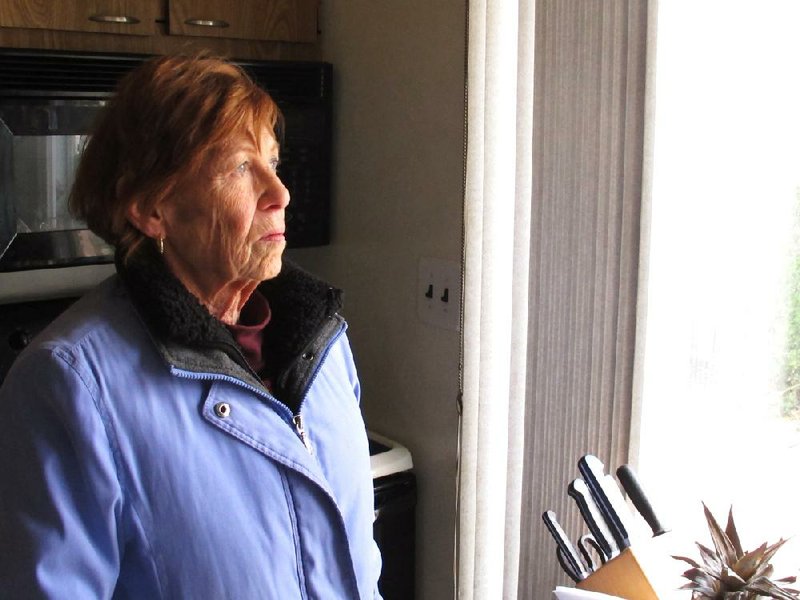FARMINGDALE, N.Y. — Eileen James sits by the window when the sun is out, wears gloves to bed and hasn’t had a hot meal in a week.
RELATED ARTICLE
http://www.arkansas…">Cold adds to storm-area woes
Like many elderly people in the New York area coping with no electricity or heat in their homes in the aftermath of superstorm Sandy, the 78-yearold retired secretary confesses she’s “starting to get less and less patient.”
Health-care officials, social workers and other volunteers are paying close attention to the elderly in the days since Sandy left millions in the dark throughout metropolitan New York and New Jersey. While some say life experiences have tempered the ability of the region’s oldest residents to cope with the immensity of the destruction, others note signs that the stress of no electricity, displacement from their homes and upheaval from their daily routines is beginning to take a toll.
James said she has considered driving east to a daughter’s home, but prefers to remain local so she can vote in the presidential election on Tuesday.
Karen Boorshtein, president and CEO of Long Island’s Family Service League, said the group has been monitoring nursing homes and reaching out through social workers to check on the elderly in their homes.
“We’re making sure patients’ needs are being met, [that] if they need to be evacuated that they are evacuated,” Boorshtein said. The workers also stay in contact with patients’ relatives “to make sure there are no concerns with their loved ones in the nursing homes.”
Suffolk County’s Office of Aging reached out to 725 seniors before the storm to warn them to prepare, said county spokesman Vanessa Baird-Streeter. When Sandy passed, the office sent teams to the homes of residents who couldn’t be reached by telephone and by Friday afternoon, all had been accounted for, she said. Some were provided with extra blankets and food while others were taken to Red Cross shelters.
Dr. Marie Genevieve-Iselin, a psychologist specializing in elder care at Zucker Hillside Hospital in Queens, said many of her patients have fared well.
“On the whole, they are very resilient,” she said, adding that older adults generally tend to cope well. “They have had other crises in their lives that they have been able to master and it gives them a road map.”
Dr. Gisele Wolf-Klein, director of Geriatric Education at North Shore-Long Island Jewish Health System, said older dementia patients were among those facing the greatest challenges. “Some of those who care for the elderly were unable to get to their homes because of their own transportation issues,” Wolf-Klein said. That meant some older patients were “left alone without any help and that becomes a major, major problem.”
She said some patients required changes in their medication, while others were temporarily placed in elder care facilities to be treated for heightened anxiety.
Island Harvest, a Long Island-based food bank, dispatched a fleet of 11 trucks to various locations, giving out sandwiches and drinks. President and CEO Randi Shubin Dresner said she has seen many seniors at the trucks.
Information for this article was contributed by Ben Nuckols of The Associated Press.
Front Section, Pages 4 on 11/05/2012

